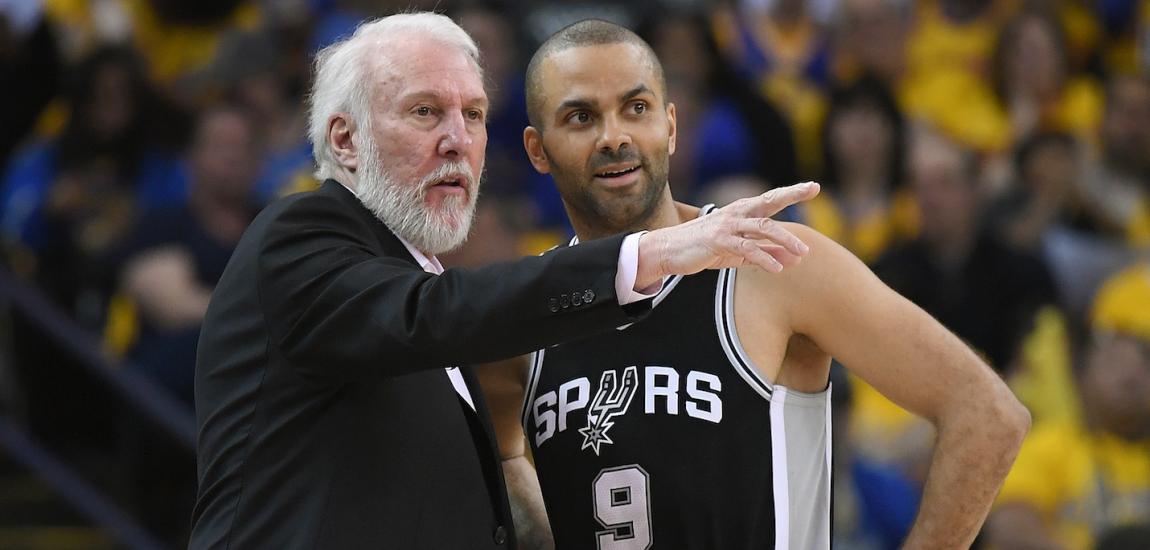Martin Luther King Day 1990. Knicks-Bulls. 106-106. 0:00.1 second left on the clock. New York ball.
Young readers may expect a tip-in to come next. Right? That is the only scoring play allowed with a tenth of a second left on the clock.
Veteran NBA fans know what actually happened next: The Trent Tucker Play.
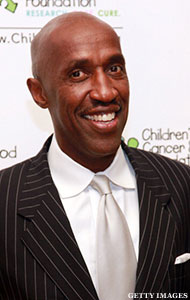
The 1989-90 season was the NBA's first with tenths of a second on the clock in the final minute of each quarter. The league and its fans were excited to have more precise timing. What they did not know was how physics played into the equation.
Unsure of what 0:00.1 meant to the science of shooting a basketball, Knicks coach Stu Jackson designed a play for a Patrick Ewing lay-up or tip-in. Mark Jackson would inbound the ball from the right hash and look for Ewing near the hoop. Either Ewing would make a miraculous redirection to win the game or the Knicks would settle for overtime.
Tucker, the Knicks shooting guard, was guarded by Michael Jordan on the play.
"I was supposed to be a decoy," Tucker says. "We were hoping that we could empty out the back side and take Michael with me."
His Airness wasn't fooled.
"Michael Jordan, being the smart player that he was, he read the play," Tucker remembers.
As Tucker sprinted from the left block, along the baseline and up the sideline, Jordan did not follow. Jordan stayed around the hoop to double team Ewing as he correctly predicted the Knicks' call for an alley-oop.
"We didn't have a second option planned because with a tenth of a second, we didn't have a lot of time to do anything else," Tucker says. "And I knew Mark Jackson was up against the five-second count. I just ran to make myself available and [Jackson] gave me a little flip pass. I turned and shot the ball as quickly as I could, and on that day, that was a great day for the New York Knicks, because that shot went in."
Referee Ronnie Nunn raised both arms skyward to signal the three-point shot's legitimacy. The Knicks won 109-106. Controversy erupted.
In today's NBA, Jackson would have had to force a pass to Ewing and hope he could beat two defenders for the tip-in. But at the time, there was no written rule prohibiting a catch-and-shoot situation with a jump shot.
After the game, league officials began studying the physics to decide how much time is needed to take a jump shot. A few weeks later, the NBA instituted a rule that stated at least 0:00.3 must be showing on the clock to attempt a jump shot. The only plays that can result in baskets in 0:00.2 or less seconds is a tip-in or "high lob."
This is explained on page 55 of the NBA Rule Book. Casually, it is known as the "Trent Tucker Rule."
More than 22 years later, the rule is Tucker's main claim to fame. Unless the human race evolves into a quicker species, the rule will stand as long as basketball remains.
But Trent Tucker is more than a rule's namesake. More people would know this if it were not for his humility and unselfishness.
Tucker retired from the NBA in 1993 after winning an NBA title with the Bulls and began planning his own charitable foundation. Dating back to Tucker's youth, the 52-year-old learned the importance of helping others.

"Growing up in Flint, Mich., it was a very tough environment," Tucker says. "I was lucky enough to have a mother and father in the house, but also the community was so good in supporting us, and we always had someone in the community, who was willing to step in and help out in a time of need. I asked one of the guys during that time, how could we ever repay you back for what you've done for us, and he said if you're ever in a position to help, just pass on the knowledge, and that stuck with me throughout my entire sports career life."
Tucker's recent efforts include hosting a banquet and celebrity golf tournament in New York to raise money for the Trent Tucker University Scholars Program and The Max Cure Foundation, which is devoted to research of rare pediatric cancers.
"Trent is the epitome of what makes America great," former NBA guard Greg Anthony says. "He has a passion to help other people. He understands that life is bigger than him and that he has a role, an obligation, and an opportunity to help and encourage generations."

Tucker, who lives in Minneapolis with his wife, Malina, and sons William Jessie and James Patrick, established the Trent Tucker Non-Profit Foundation in 1998. Its mission was "to provide youth an opportunity to grow academically and understand how to be successful despite the temptations they face in their neighborhood environments." During the past 14 years the foundation, which became known as the All 4 Kids Foundation in 2010, has raised nearly $2 million.
Tucker's goal is to educate underprivileged and at-risk youth in middle school about their future. He feels this age is not too early and not too late.
"I wanted to give them different resources and different opportunities, so for the first time, they could dream and think differently about how their world could look five, six, seven years down the road," he says.
His dream of turning unsure middle school students into college graduates has become a reality thanks to the Trent Tucker University Scholars Program that includes a series of after-school activities for children in grades six to eight at corporate facilities. Students in the program are introduced to the campus, faculty, students and programs at University of Minnesota, Tucker's alma mater. Mentors and tutors at the university help the children reach Minnesota Department of Education state standards in core subject areas.
About 11 years after Tucker introduced his after-school programs, he saw its first batch of students earn degrees this spring at a variety of private and public colleges.
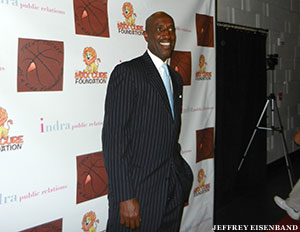
"To sit in that auditorium and see some of those kids walk across that state to get their college degree after being with us since 2001, that was one of the proudest moments I think I've ever been a part of," Tucker says. "They were able to stick with it when things got tough. They had resources and people they could rely on to help them get through those tough times."
This fall, Tucker is extending his youth after-school programs beyond Minnesota to New York City where underprivileged and at-risk children will have a similar program at Columbia University.
"That's a really wonderful opportunity for us to be at a prestigious institution like Columbia University, who is willing to work with us now to give young people in their environment and their Harlem environment an opportunity to experience what a big time institution like Columbia is," Tucker says. "I think that's really going to help a lot of kids see the future very differently."
Although Tucker's development as a philanthropist began in Flint, he credits his agent, the late Irwin Weiner, who also represented Julius Erving and Walt Frazier, to opening his eyes to charitable programs in New York during his career. That gave him the needed push to start his own foundation.
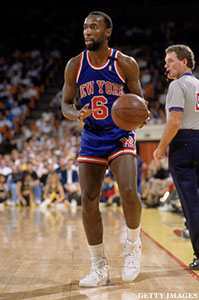
"When I was playing for the Knicks, he always made me sure he would take me places that I could see what philanthropy work was all about," Tucker recalls. "He was the first one to really get me engaged into thinking about doing this type of work once my basketball career was over."
Tucker's long-term goal is to develop charter schools in Minneapolis and New York.
Former teammate John Starks realized Tucker's unselfishness for the first time 20 years ago. Starks arrived in New York as an unproven 25-year-old journeyman, while Tucker was a 30-year-old veteran. Tucker went out of his way to calm the young Starks.
"Trent has a big heart. When I first got to New York, Trent took me under his wing and kind of showed me the ropes," Starks says. "He's just an incredible person and incredible friend, and it's no surprise that he's doing great work."
Ironically, Starks eased into Madison Square Garden life so quickly, when Tucker's contract ran up at the end of the season, the Knicks let him walk to give Starks more playing time.
Ex-Knicks Starks, Anthony, Ewing, Charles Oakley and Johnny Newman attended the annual Trent Tucker Celebrity Gala on Sunday in midtown Manhattan. Other guests included Knicks coach Mike Woodson, Cavaliers coach Byron Scott, former New York Giant Howard Cross, former New York Met Howard Johnson, Brooklyn Nets forward Kris Humphries and country music stars Clay Walker and Sarah Marince.
The event was a fundraiser for Tucker's educational projects as well as The Max Cure Foundation, a cause established by David Plotkin, a Wall Street securities trader, after his son, Max, fought and defeated pediatric cancer. Plotkin was introduced to Tucker in 2011 by their publicist, MJ Pedone, and the two realized a partnership could be established.

"Even though he's about education and we're about cancer, we're both about helping all kids," Plotkin says. "There's no better face on our foundation than Trent Tucker."
David's father, Richard, also co-founder of MCF, now sees Tucker differently than he saw him as a basketball fan two decades ago. "I remember Trent Tucker as a great basketball player and a top notch three-point shooter," Richard says. "That all pales to Trent Tucker as a person. He's transferred that to helping underprivileged kids get an education, and now he's transferred that to a portion of our foundation that helps low income families battle pediatric cancer. It's just a great synergy."
The Plotkins and Tucker are working together on an initiative called "Dunk Your Kicks" in which children are encouraged to recycle their old sneakers. Each pair of sneakers "dunked" results in one dollar being donated to the multiple pediatric cancer causes supported by The Max Cure Foundation and the All 4 Kids Foundation.
Tucker was never quite a superstar in the basketball world. He finished his career with averages of 8.2 points, 2.0 rebounds and 2.0 assists in a decade as a role player. But off the court, he is a superstar.
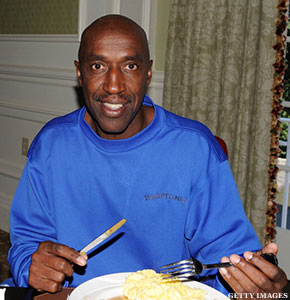
"You learn most about guys when you see them day to day," Anthony says. "Whether it be in practice and how they conduct themselves, when you see someone facing genuine adversity, that's when you realize what a person's character's all about. It's like playing in a game. It's easy when you're up and you're winning and everything's going well. You find out the true test of someone's character when things are not going well. And that's when we all found out how wonderful and special of a human being Trent Tucker was.
"When things weren't great, he was the same person. He was always looking forward to the next opportunity. His attitude was always tremendous. And his unselfishness about making sure he provided opportunities for his teammates, for his friends, for his family, for people he never knew. We all knew Trent was destined for greatness, and he's proven that time and time again."
Anthony and the other celebrities who attend Tucker's fundraisers consider it more of a privilege than an obligation to support his foundation. Other big names who have supported the foundation include Michael Jordan, Scottie Pippen, Kevin Garnett, Kenny Lofton and B.J. Armstrong.
Tucker is humbled by all the support his peers has given him on the philanthropic front.

"It means a great deal to me because as a player, there are guys who would like to be remembered for a lot of different things, and one thing that I would loved to be remembered by is that I was a good teammate," Tucker says. "I did everything in my power as a player to be prepared to help my team and my teammates win basketball games, but also to be a good friend as well. I am just so thankful these guys think enough of me as a person to give enough of their free time back to help out."
One All 4 Kids Foundation face who is notably not a former athlete, but rather a current athlete, is Humphries, the rebounding machine for the Nets and former reality TV star. Humphries' father, William, played offensive line for the Minnesota football team while Tucker starred on the basketball team that won the 1982 Big Ten title. The two developed a close friendship and when Kris began to show potential as an NBA player, William had his old friend Trent give his son some pointers.
"When he was in high school, we began to work out and do some different things on the basketball court," Tucker says. "I knew he had the talent and I knew he had an opportunity. I just wanted to see if I could play a small role in part of his development and he and I grew to like each other, to trust each other. We have a great relationship and I'm so happy to see he has taken his game to a whole new level."

Tucker left his mark on Humphries both on the court and off the court. While training Humphries, Tucker also had him work as a tutor for some of the children involved with Tucker's foundation. Tucker made sure to teach Humphries the value of philanthropy before he made it big.
"It was cool to see someone giving back and learn that aspect of being an athlete and being a good person at an early age," Humphries says. "A lot of people do charitable things because they think that they have to or sometimes it's good for your image. I think he does it because he truly cares. He's a good example for athletes and he's a good dude above all."
For Humphries, this has been a valuable lesson, as he has been a fixture in the spotlight both on the court and off the court in the last couple years. Throughout it all, he has continued to be a visible supporter of the All 4 Kids Foundation.
Although Tucker spends much of his time working on the foundation, he still manages to follow the NBA and he's impressed with the balance of talent from rookies to veterans.
"You've got LeBron James, Dwyane Wade, Kevin Durant and Kobe Bryant is still in the mix," he says. "Jeremy Lin was a wonderful surprise last year and some of the old guys are still hanging on. You see a nice balance of youth and experience all clashing together that can bring the game to new heights and new levels. The NBA is in a very good place."

During his prime, Tucker was best known most for his three-point shot. He made 575 career three-pointers, was a 41-percent shooter from beyond the arc and was a semifinalist in the inaugural three-point shootout won by Larry Bird in 1986. Although Tucker has heard many people in the basketball world say the outside shooters of today are much more talented than the shooters of his era, he disagrees.
He wants a shoot-off.
"We would love the chance to take on some of the new guys of this era," he says. "Reggie Miller, Dale Ellis, Dell Curry and Craig Hodges. I played against some guys who could really shoot the basketball."
Tucker laughs for a few more seconds after mentioning his proposed shoot-off. He enjoys talking about the NBA, but basketball is not his passion anymore. That spot in his heart is reserved for helping underprivileged and at-risk children achieve success in higher education.
He quickly reverts the conversation back to his foundation's plans.
"It's always nice to come back to New York City and to be a part of this environment again, building a program and building awareness of what we are doing," he says of the gala. "Also, to me, being able to connect with Columbia University, is a really big time thing for us."
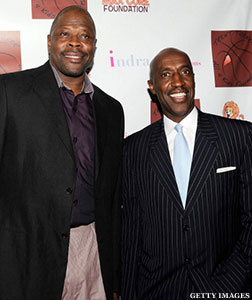
Trent Tucker is not a three-point specialist or a contributing member of a world championship team any more, and he's not just the namesake of an NBA rule. He is among the most philanthropic individuals in the history of professional athletes.
"I like to think that I'm a well-rounded individual, where I like to be a part of a lot of different causes and situations," he says. "I'm a people's person. I enjoy being around people. I like communicating and meeting people from all walks of life, but my passion is working with kids and giving kids an opportunity to see a different world for the first time."
During his NBA career, Trent Tucker was never the loudest player on the court or off the court. Even today, Tucker does not speak all that much louder than a whisper.
In philanthropy, Tucker is making a whole lot of noise.
"Trent Tucker is what being a professional athlete's all about," Anthony says. "It's not about just your ability to play the game. It's about your ability to impact society. And that's what Trent Tucker does."
No matter how much time is left on the clock.
-- Follow Trent Tucker's Foundation on Facebook and Twitter @TuckerAll4Kids.








